If you’re getting ready for the SSC MTS Exam from 21 to 24 October 2025, mastering sentence correction is key to scoring well in the English section. This article provides 25 important sentence correction questions based on the latest exam pattern.
These questions will help you improve your grammar, sentence structure, and ability to spot errors quickly. Each question includes a detailed answer to help you understand better. Regular practice will boost both your accuracy and speed, which are crucial for the exam. Bookmark this article and review these important questions regularly for improved results.
25 Important Sentence Correction Questions for the MTS Exam
Q.1. Select the word segment that substitutes (replaces) the bracketed word segment correctly and completes the sentence meaningfully. Select the option ‘no correction required if the sentence is correct as given.
The dessert was not just extremely hot but (also to sweet as well).
- besides too sweet as well.
- also too sweet.
- No correction required
- also being too sweet.
Answer: B
Sol:
The correct replacement is (b) also too sweet.
· Explanation: The phrase “but also to sweet as well” is incorrect due to redundancy (“also” and “as well”) and incorrect word form (“to” instead of “too”).
· Grammatical rule used: Parallel structure and adverb use – “Too” is the correct form to mean “excessively”. Avoid redundancy like using both “also” and “as well” in the same phrase.
· Example: The soup was too salty and also too spicy.
Meanings of other options:
· (a) besides too sweet as well – Redundant and incorrect structure.
· (c) No correction required – Incorrect as the original sentence has grammatical issues.
· (d) also being too sweet – Incorrect verb form use.
Q.2. Select the most appropriate option to substitute the bracketed segment in the given sentence. If there is no need to substitute it, select ‘no substitution required’.
(Because he has been in custody from last July.) Pickard will now be released in four months.
- Because he had been in custody from last July,
- Because he has been in custody since last July,
- Because he had been under custody from last July,
- No substitution required
Answer: B
Sol:
The correct substitution is (b) Because he has been in custody since last July.
Explanation: “From” is incorrect when referring to a point in time in Present Perfect tense. “Since” is the correct preposition with “has been”.
· Grammatical Rule Used:
· Present Perfect Tense + since + specific time = ongoing action from a point in the past to present.
· Explanation in Hindi:
· जब कोई कार्य भूतकाल में शुरू होकर अभी तक जारी है, और समय निश्चित है (जैसे July), तो “since” का प्रयोग होता है।
Meanings of the options:
· (a) Incorrect tense – “had been” refers to past perfect.
· Hindi: यह past perfect है जो यहाँ उपयुक्त नहीं है
· (b) Correct tense and preposition.
· Hindi: “has been” और “since” का सही प्रयोग
· (c) “Under custody” is awkward phrasing.
· Hindi: “under custody” औपचारिक नहीं है
· (d) Incorrect as it uses “from” with Present Perfect.
· Hindi: Present Perfect में “from” का प्रयोग नहीं होता
Q.3. Select the most appropriate option to substitute the bracketed segment in the given sentence. If there is no need to substitute it, select ‘no substitution required’.
The Bank of New York has increased (interest rates four times from last January.)
- interest rates from last January, for times.
- No substitution required
- interest rates four times since last January.
- the interest rates four time from last January.
Answer: C
Sol:
· Correct option: (c) interest rates four times since last January.
· Explanation: The sentence refers to an action that began in the past and continues to the present, thus the correct usage is present perfect with “since”.
· Grammatical rule used:
· Present Perfect Tense with “since” is used to describe an action that started at a specific point in the past and continues.
· Structure: has/have + past participle + since + time point.
· Hindi rule: “Since” के साथ जब कोई कार्य भूतकाल में शुरू हुआ और वर्तमान तक प्रभावी है, तो Present Perfect Tense का प्रयोग किया जाता है।
· Example: They have visited us several times since January.
· Meanings of other options:
· (a) Grammatically incorrect; “for times” should be “four times”.
· Hindi: व्याकरणिक त्रुटि है।
· (b) Incorrect because it misuses “from” with Present Perfect.
· Hindi: Present Perfect Tense के साथ “since” का प्रयोग होता है।
· (d) Incorrect article usage and wrong verb form.
· Hindi: “time” की जगह “times” और “the” अनावश्यक है।
Q.4. Improve the highlighted part of the sentence. Choose ‘No improvement’ as an answer if the sentence is grammatically correct.
The dress is too tights around the waist.
- too tightly
- too tightest
- No improvement
- too tight
Answer: D
Sol:
The adjective “tight” is used to describe the noun “dress”. “Tights” is plural and refers to a type of clothing; it’s incorrect here. So, “too tight” is the right form.
Grammatical Rule Used:
Adjectives modify nouns and must be used in their base or comparative/superlative form as per requirement. Here, “too + adjective” is used to show an excessive degree.
Explanation of the rule in Hindi:
जब किसी noun की विशेषता बताई जाती है, तो adjective का सही रूप प्रयोग करना चाहिए। “Too tight” का प्रयोग अधिक तंग कपड़े को दर्शाने के लिए होता है।
Meanings of all options:
· (a) too tightly: Adverb, not suitable here as we need an adjective (बहुत कस कर)
· (b) too tightest: Incorrect superlative usage (ग़लत रूप)
· (c) No improvement: Incorrect, as “tights” is wrong
· (d) too tight: Excessively snug (बहुत तंग)
Q.5. Select the word segment that substituted (replaces) the bracketed word segment correctly and completes the sentence meaningfully. Select the option ‘no correction required’ if the sentence is correct as given.
(Those Mount Everests) is Earth’s highest mountain above sea level, located in the sub-range of the Himalayas.
- Mount Everest
- A Mount Everest
- The Mount Everest
- No correction required
Answer: A
Sol:
The phrase “Those Mount Everests” is incorrect because “Mount Everest” is a singular proper noun and doesn’t take a demonstrative plural like “those.” The correct form is just “Mount Everest.”
Grammatical Rule Used:
· Proper nouns are treated as singular and do not take plural determiners. Additionally, articles are not used unless specifying context (e.g., the Mount Everest expedition).
Hindi Explanation:
“Mount Everest” एक विशिष्ट नाम है और यह बहुवचन (Those) के साथ प्रयोग नहीं किया जा सकता।
Meanings of the options:
· (a) Mount Everest – Correct; singular proper noun.
· Hindi: माउंट एवरेस्ट
· (b) A Mount Everest – Incorrect; article “a” not needed.
· Hindi: गलत प्रयोग
· (c) The Mount Everest – Not required unless specifying something.
· Hindi: जब तक कोई विशेष उद्देश्य न हो, “The” नहीं लगाते।
· (d) No correction required – Incorrect; sentence contains error.
· Hindi: वाक्य में त्रुटि है
Q.6. Improve the highlighted part of the sentence. Choose ‘No improvement’ as an answer if the sentence is grammatically correct.
The candidate win the voting by a narrow margin.
- No improvement
- win a vote
- wins the voted
- won the vote
Answer: D
Sol:
Sol. The correct substitution of the highlighted words is (d) won the vote.
· Explanation: The sentence refers to a completed past event. “Win” is present tense and inappropriate here. “Won the vote” is grammatically correct for past tense.
· Grammatical rule used:
· Tense Consistency Rule: If the context is clearly in the past, then past simple (“won”) should be used.
· Verb usage in past tense: “Win” (present), “won” (past), “won” (past participle).
· Explanation in Hindi:
· जब क्रिया किसी पूर्व में पूर्ण हुई घटना को दर्शा रही हो तो उसमें verb का past form (won) प्रयोग किया जाता है।
· Example:
· Incorrect: The team win the match yesterday.
· Correct: The team won the match yesterday.
Q.7. Select the most appropriate option to substitute the bracketed segment in the given sentence. If there is no need to substitute it, select ‘no substitution required’.
(Plots to dispose him came) to nothing.
- No substitution required
- Plots to dispose off him comes
- plots which dispose him came
- Plots to dispose of him came
Answer: D
Sol:
The correct substitution is (d) Plots to dispose of him came.
· Explanation: The phrasal verb “dispose of” is used when talking about removing someone/something. “Dispose” always takes “of” in this sense.
· Grammatical rule used:
· Phrasal Verb Rule: Some verbs require specific prepositions to make sense; “dispose of” is one such verb.
· Explanation in Hindi:
· “Dispose” एक phrasal verb है, जिसमें “of” लगाना अनिवार्य है – इसका मतलब होता है छुटकारा पाना।
· Meanings of other options:
· (a) No substitution required – incorrect as “dispose” lacks “of”.
· Hindi: “of” का प्रयोग नहीं है, गलत।
· (b) dispose off him comes – “off” is incorrect; tense mismatch.
· Hindi: “off” गलत preposition है।
· (c) plots which dispose him came – faulty clause structure.
· Hindi: व्याकरणिक रूप से त्रुटिपूर्ण वाक्य।
Q.8. Select the word segment that substitutes (replaces) the bracketed word segment correctly and completes the sentence meaninfully. Select the option ‘no correction required’ if the sentence is correct as given.
I received word that you (were attempting) to contact me.
- No correction required
- were strike
- has attempting
- was attempting
Answer: A
Sol:
The correct choice is (a) No correction required.
· Explanation: “Were attempting” is correct because it represents an action ongoing in the past. The subject “you” goes with “were” in past continuous tense.
· Grammatical rule used:
· Past Continuous Tense: Subject + was/were + verb + ing.
· Explanation in Hindi:
· “Were attempting” past continuous tense का सही प्रयोग है – यह बताता है कि कोई कार्य उस समय चल रहा था।
· Meanings of other options:
· (b) were strike – grammatically incorrect; “strike” is a base form, not used with “were” directly.
· Hindi: गलत क्रिया रूप।
· (c) has attempting – incorrect auxiliary “has” with verb+ing.
· Hindi: गलत सहायक क्रिया का प्रयोग।
· (d) was attempting – wrong subject-verb agreement (“you” requires “were”).
· Hindi: “you” के साथ “were” आता है, “was” नहीं।
Q.9. Improve the highlighted part of the sentence. Choose ‘No improvement’ as an answer if the sentence is grammatically correct.
The dessert was many sweet for my tastes.
- more sweeter
- too sweet
- No improvement
- too sweetly
Answer: B
Sol:
The correct improvement is (b) too sweet.
Explanation:
• “Many sweet” is grammatically incorrect.
• “Too” is used with adjectives to indicate excess (too sweet = excessively sweet).
Correct sentence: The dessert was too sweet for my tastes.
Grammatical Rule Used:
• Use “too + adjective” to show excess or something beyond acceptable level.
• Never use “many” with adjectives like “sweet.” “Many” is used with countable nouns (e.g., many apples).
Example: The coffee was too hot to drink.
Q.10. Select the most appropriate option to substitute the bracketed segment in the given sentence. If there is no need to substitute it, select ‘no substitution required’.
The query isn’t (whether he will admit it, but when).
- whether he will admit it or not, but when?
- No substitution required
- whether he will be admitting it or not, but when?
- whether or nor he will admit it, but when?
Answer: B
Sol:
The correct answer is (b) No substitution required.
Explanation:
The structure “ The question isn’t whether X, but when” is idiomatic and grammatically correct. It contrasts “if” with “when” — not whether he will admit, but when he will.
Correct sentence: The query isn’t whether he will admit it, but when.
Grammatical Rule Used:
• Whether… but when is used to express that something is bound to happen – the doubt is only about the timing.
• “Whether… or not” is unnecessary here and would be redundant.
Example: The issue isn’t whether he’ll win the award, but when.
Q.11. Select the word segment that substitutes (replaces) the bracketed word segment correctly and completes the sentence meaningfully.
The (roof collapsing) in a roar of rock and rubble.
- roof collapsed
- roof have collapsed
- roof was collapse
- No correction required
Answer: A
Sol:
The correct substitution is (a) roof collapsed.
Explanation: The subject is “roof” (singular noun), and the verb must agree with it in past simple form, as the sentence narrates a past event.
Correct sentence: The roof collapsed in a roar of rock and rubble.
Grammatical Rule Used:
• In past narrative, use past simple tense with singular subject.
• “Collapsing” would be present participle and grammatically incorrect here unless paired with auxiliary verb “was.”
Example: The wall collapsed after the explosion.
Q.12. Select the most appropriate option to substitute the bracketed segment in the given sentence. If there is no need to substitute it, select ‘no substitution required’.
(No sooner had the ink dried on last week’s column, that) one of my long-suffering 17 readers was into action.
- No sooner had the ink dry on last week’s column, than
- No sooner did the ink dried on last week’s column, than
- No substitution required
- No sooner had the ink dried on last week’s column, than
Answer: D
Sol:
The correct substitution is (d) No sooner had the ink dried on last week’s column, than.
Explanation:
The phrase “No sooner… than” is a standard correlative structure used to indicate that one event quickly follows another.
Also, the auxiliary verb “had” must be followed by V3, which is “dried”.
Correct sentence: No sooner had the ink dried on last week’s column, than one of my readers sprang into action.
Grammatical Rule Used:
• “No sooner” is followed by inversion: No sooner + had + subject + V3 + than + clause.
Example: No sooner had I reached the station than the train departed.
Information Booster: Using “that” instead of “than” in such structures is a common SSC error trap.
Q.13. Improve the underlined part of the sentence. Choose ‘No improvement’ if the sentence is grammatically correct.
Training your dog have required a lot of patience.
- require the lot
- requires a lot
- required lot
- No improvement
Answer: B
Sol:
The correct substitution of the underlined part is (b) requires a lot.
Explanation: The subject “training” is a gerund (verb-ing form functioning as a singular noun), hence it takes a singular verb. The present simple tense is appropriate here because the statement is general and factual.
Correct sentence: Training your dog requires a lot of patience.
Grammatical Rule Used:
• Gerunds act as singular nouns and require singular verbs.
• Subject-verb agreement: A singular subject takes a singular verb (e.g., requires), not plural (e.g., have).
Example: Jogging every morning requires dedication.
Information Booster: Avoid confusion between gerunds and plural subjects. “Training” may look like a verb but is a singular noun here.
Q.14. Select the word segment that substitutes (replaces) the bracketed word segment correctly and completes the sentence meaningfully. Select the option ‘no correction required’ if the sentence is correct as given.
The (captain with the members of his team) failed to qualify for the African Nations Cup finals.
- No correction required
- captain and his team
- captain along with the members of his team
- captain along side the members of his team
Answer: C
Sol:
The correct substitution is (c) captain along with the members of his team.
Explanation:
The phrase “along with” indicates that the main subject is singular ( captain), and the added phrase “the members of his team” is additional and does not affect the verb. Therefore, the singular verb “failed” is correct.
Correct sentence: The captain along with the members of his team failed to qualify…
Grammatical Rule Used:
• When using expressions like “along with,” “together with,” “as well as,” the main subject determines the verb form.
Example: The principal along with the teachers was present.
Information Booster: If “and” were used instead, the subject would become plural, and the verb would have to be plural as well.
Q.15. Improve the underlined part of the sentence. Choose ‘No improvement’ as an answer if the sentence is grammatically correct.
Fishermen make their lives from the sea.
- No improvement
- his living
- there livings
- their live
Answer: A
Sol:
The correct answer is (a) No improvement. Explanation: The phrase “make their lives from the sea” is grammatically acceptable, though more commonly used variation is “make their living.” However, since the plural “their lives” matches with the plural subject “fishermen,” and the context is idiomatic, the original form is acceptable.
Grammatical Rule Used: • Phrases like “make a living” and “make a life” both imply earning through an activity, and both are grammatically correct depending on context.
Example: Farmers make their lives from the land.
Information Booster: “Make a living” is often more common when referring specifically to earning money, but “make a life” or “lives” is used to describe a broader lifestyle.
Q.16. Select the option that will improve the highlighted part of the given sentence.
Please clean your room first and than meet I downstairs.
- No improvement required
- and than meets me
- or then meeting me
- and then meet me
Answer: D
Sol:
The correct substitution of the highlighted words is (d) and then meet me.
Explanation:
The word “than” is incorrect here—it is used for comparisons. The correct word is “then”, which is used to indicate time or sequence.
Also, “meet I” is grammatically incorrect. The correct pronoun in objective case should be “me”.
Grammatical rule used:
Use “then” for sequencing events: do A, then do B.
Use “me” as the object of the verb “meet”.
Example: First finish your dinner, and then meet me in the hall.
Q.17. Select the option that will improve the highlighted part of the given sentence.
My assistant will see you in the meets next week.
- on the meets
- in an meeting
- No improvement required
- at the meeting
Answer: D
Sol:
The correct substitution of the highlighted words is (d) at the meeting.
Explanation:
The word “meets” is incorrect in this context. The sentence is referring to a scheduled meeting (noun, singular), and the correct preposition for referring to an event is “at”.
Grammatical rule used:
Use “at” with specific events: at the concert, at the conference, at the meeting.
“Meets” is plural, but here we refer to one scheduled meeting, so the singular noun should be used.
Example: The manager will join us at the meeting tomorrow.
Q.18. Select the most appropriate option to substitute the highlighted segment in the given sentence. If there is no need to substitute it, select ‘No substitution required’.
The Himalayas is the highest and one of the more beautiful mountain ranges of the world.
- one of the much
- one of the such
- one of the most
- No substitution required
Answer: C
Sol:
The correct substitution of the highlighted words is (c) one of the most.
Explanation: The phrase “one of the…” should be followed by a superlative adjective, not a comparative one like “more”. Hence, “more beautiful” is incorrect. The correct structure is “one of the most beautiful”.
Correct sentence: The Himalayas is the highest and one of the most beautiful mountain ranges of the world.
Grammatical rule used: “One of the + superlative + plural noun” is the correct structure.
Example: She is one of the most talented singers in our school.
Superlative structure rule: After “one of the,” use a superlative adjective to indicate the highest degree among many.
Q.19. Select the option that will improve the highlighted part of the given sentence.
Please fill away this application form while you wait for your turn.
- No improvement required
- on
- by
- out
Answer: D
Sol:
The correct substitution of the highlighted words is (d) out.
Explanation: The phrasal verb “fill out” means to complete a form or document by providing necessary details. “Fill away” is incorrect and does not exist as a valid phrasal verb in this context.
Grammatical rule used: Certain phrasal verbs have fixed combinations that cannot be altered. “Fill out a form” is standard usage.
Example: Please fill out this registration form before proceeding.
Note: “Fill in” is also acceptable, but “fill out” is more commonly used in American English for completing forms.
· (a) No improvement required – incorrect as “fill away” is wrong
· (b) on – wrong preposition
· (c) by – not used with “fill” in this context
Q.20. Improve the highlighted part of the sentence. Choose “No improvement’ as an answer if the sentence is grammatically correct.
Drive two blocks and turn right at the traffic lights. Rev
- turn right in
- turns right at
- No improvement
- turn rightly at
Answer: C
Sol:
The correct sentence requires No improvement.
Explanation: The structure is imperative, giving a command. “Turn right at the traffic lights” is standard usage in English.
· Grammatical Rule Used:
· Imperative Sentences – start with the base form of a verb and give directions, commands, or instructions.
· Explanation of the rule in Hindi:
· आदेश देने वाले वाक्य imperative होते हैं और इनमें verb का मूल रूप (जैसे “turn”) प्रयोग किया जाता है।
Meanings of the options:
· (a) turn right in: incorrect preposition.
· Hindi: “in” का प्रयोग स्थान के लिए होता है, यहाँ अनुपयुक्त है
· (b) turns right at: incorrect verb form; subject less imperative sentence.
· Hindi: “turns” गलत है क्योंकि subject नहीं है
· (c) No improvement: correct choice.
· Hindi: कोई सुधार नहीं चाहिए
· (d) turn rightly at: “rightly” is an adverb; not used with direction.
· Hindi: “rightly” अर्थ में “सही ढंग से” होता है, दिशा के लिए नहीं
Q.21. Improve the highlighted part of the sentence. Choose ‘No improvement’ as an answer if the sentence is grammatically correct.
In the logo, the blue contrast wells with its complementary colour, yellow.
- No improvement
- contrast we’ll
- contrasts well
- contrast well
Answer: C
Sol:
The correct substitution of the highlighted words is (c) contrasts well.
Explanation: The subject “the blue” is singular, so it must be followed by the singular form of the verb— contrasts. The correct adverb form well (not “wells”) is used to modify the verb.
Grammatical rule used: Subject-verb agreement and adverb usage: Singular subjects take singular verbs, and adverbs modify verbs, not nouns.
Example: The red dress contrasts well with the green scarf.
Information Booster: “Well” is an adverb; “wells” is the noun/plural verb form and is incorrect here.
Q.22. Improve the highlighted part of the sentence. Choose ‘No improvement’ as an answer if the sentence is grammatically correct.
The comedian’s jokes are so bad that audiences usually groaning instead of laugh.
- No improvement
- usually groan instead of
- usual groaned despite of
- usual groan instead off
Answer: B
Sol:
The correct substitution of the highlighted words is (b) usually groan instead of.
Explanation: The structure “X instead of Y” requires parallel construction—both parts should be in the same grammatical form. Here, “groaning” (present participle) must be replaced by “groan” (base verb) to match “laugh”. Also, “usual” (adjective) is incorrect for modifying a verb phrase.
Grammatical rule used: Parallelism – when expressing two or more ideas in a sentence, they must be in the same grammatical form.
Example: She prefers to read instead of write. (both “read” and “write” are base verbs)
Information Booster: In comparisons using “rather than” or “instead of,” verb forms must agree to maintain fluency and clarity.
Q.23. Select the most appropriate option to substitute the bracketed segment in the given sentence. If there is no need to substitute it, select ‘no substitution required’.
This commodity in clay-coloured material (can’t be used neither as a table mat nor as a table napkin).
- No substitution required
- can’t be used either as a table mat or as a table napkin
- can’t be used neither as a table mat or as a table napkin
- can’t’be used neither as a table mat but as a table napkin
Answer: B
Sol:
The correct substitution of the bracketed segment is (b) can’t be used either as a table mat or as a table napkin.
· The sentence requires the use of “either…or” to show a negative and alternative choice.
Using “neither…nor” is also correct, but combining “can’t” with “neither” leads to a double negative, which is grammatically incorrect.
· Correct sentence: “This commodity in clay-coloured material can’t be used either as a table mat or as a table napkin.”
· Grammatical rule used:
When a sentence already has a negative verb (like “can’t”), the correct correlative conjunction is “either…or”, not “neither…nor”, to avoid a double negative.
· Explanation in Hindi:
जब वाक्य में पहले से ही “can’t” जैसा नकारात्मक शब्द हो, तब “either…or” का प्रयोग किया जाता है। “neither…nor” का प्रयोग एक और नकारात्मकता लाता है जो व्याकरणिक रूप से गलत होता है।
· Example:
· “He can’t eat either chocolate or ice cream.”
Q.24. Select the word segment that substitutes (replaces) the bracketed word segment correctly and completes the sentence meaningfully. Select the option ‘no correction required’ if the sentence is correct as given.
They said that they (were understandings) his theory very well.
- No correction required
- have understand
- understanding
- understood
Answer: D
Sol:
The correct substitution of the bracketed segment is (d) understood.
· The sentence is in past tense and hence the verb form should also be in past tense — “understood.”
· “Were understandings” is grammatically incorrect, as “understandings” is a noun, and “were” doesn’t pair with it in this context.
· Correct sentence: “They said that they understood his theory very well.”
· Grammatical rule used:
· Reported speech with a past reporting verb (said) requires backshifting of tense. The present tense “understand” changes to past tense “understood”.
· Explanation in Hindi:
· जब वाक्य reported speech (कथन) में हो और मुख्य क्रिया past tense (जैसे “said”) में हो, तो subordinate clause की क्रिया भी past में बदलती है।
· Example:
· He said that he knew the answer.
Q.25. Improve the highlighted part of the sentence. Choose ‘No improvement’ as an answer if
the sentence is grammatically correct.
At age 25, she taken her vows and became a nun.
- No improvement
- take her vowed
- took her vows
- take her vows
Answer: C
Sol:
The correct improvement is (c) took her vows.
· The verb “taken” is the past participle, and it requires a helping verb (e.g., “has”, “had”) to form a perfect tense. Since there is no helping verb, the correct simple past form “took” should be used.
· Correct sentence: “At age 25, she took her vows and became a nun.”
· Grammatical rule used:
When an action happened at a definite time in the past, the simple past tense is used. “Taken” is only used in perfect tenses with helping verbs.
· Explanation in Hindi:
“Taken” एक past participle है और इसे “has/had” के साथ प्रयोग किया जाता है। यदि helping verb नहीं है, तो simple past “took” का प्रयोग होता है।
· Example:
· “He took the oath yesterday.”
| SSC MTS Related Links | |
| Most Important General Knowledge Question For SSC MTS Exam | SSC MTS Important Coding Decoding Questions and Answers |
| SSC MTS Important One-Word Substitution to Practice | |

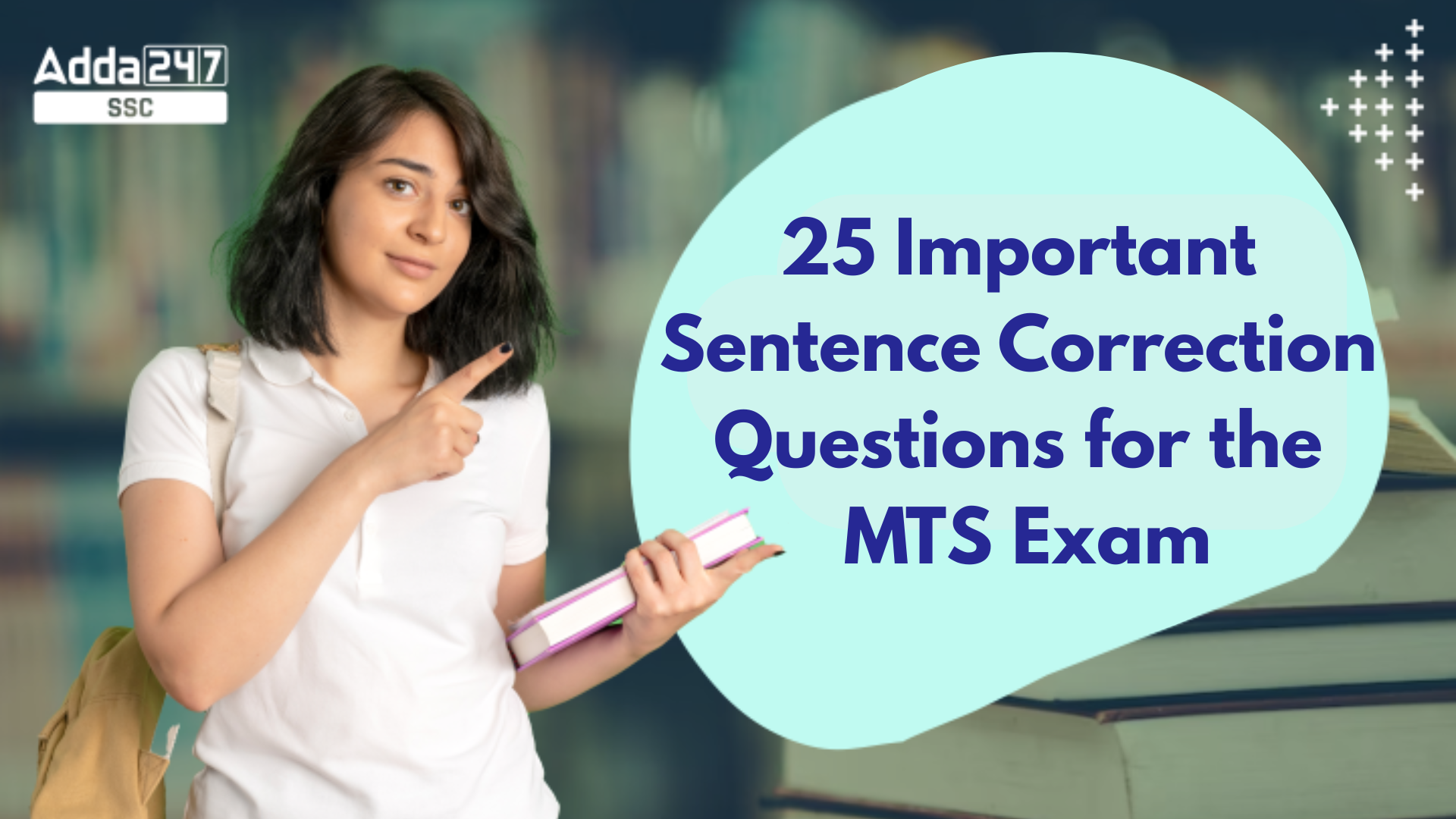
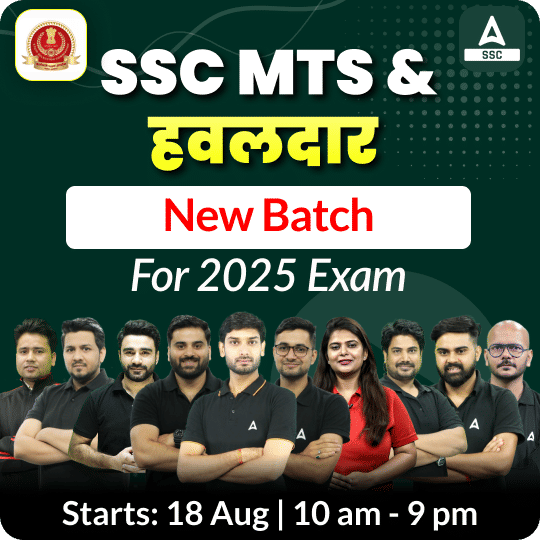

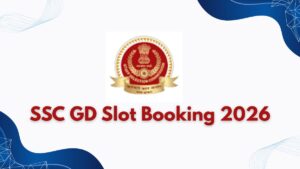 SSC GD Slot Booking 2026, Check Latest N...
SSC GD Slot Booking 2026, Check Latest N...
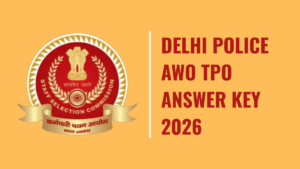 Delhi Police AWO TPO Answer Key 2026 Out...
Delhi Police AWO TPO Answer Key 2026 Out...
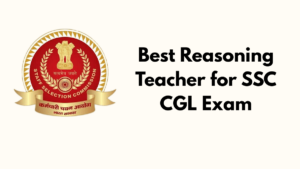 Best Reasoning Teacher for SSC CGL Exam
Best Reasoning Teacher for SSC CGL Exam
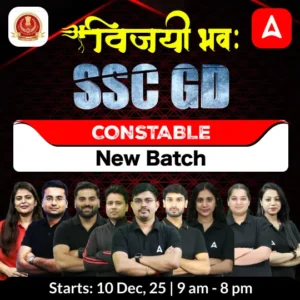
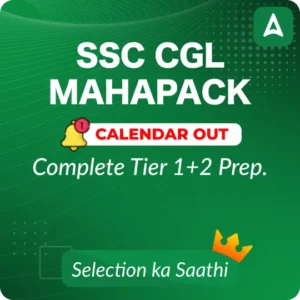
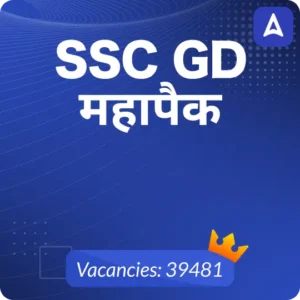
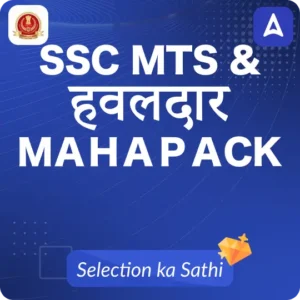

 Adda247 Job portal has complete information about all Sarkari Jobs and Naukri Alerts, its latest recruitment notifications, from all state and national level jobs and their updates.
Adda247 Job portal has complete information about all Sarkari Jobs and Naukri Alerts, its latest recruitment notifications, from all state and national level jobs and their updates.




